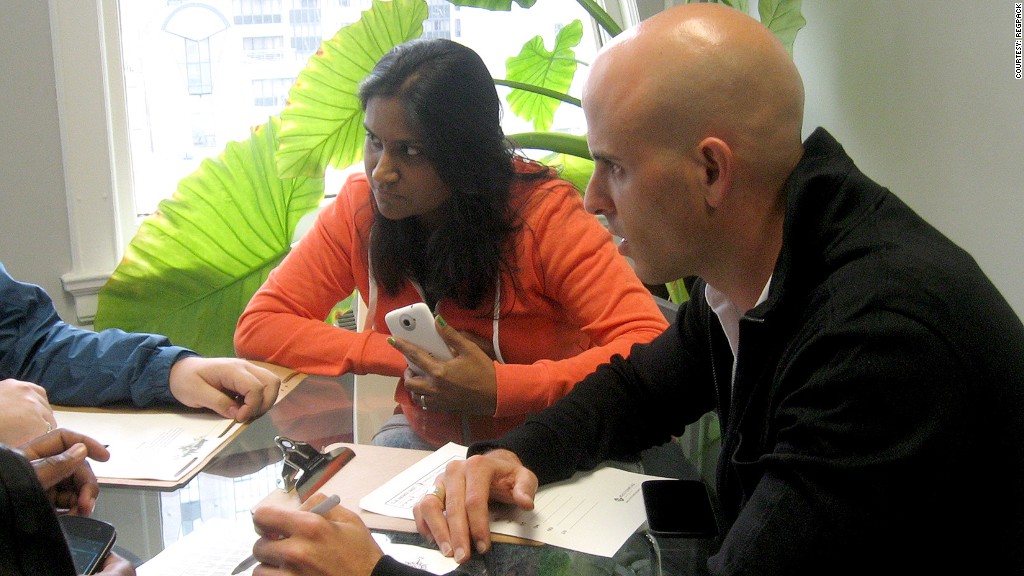
It doesn't matter that Asaf Darash started a U.S. company and created 15 jobs here. Federal immigration officials might kick him out anyway.
It's not that he did anything wrong. Rather, he's tangled in a web of immigration policies that are tough on entrepreneurs.
Darash, 38, originally came here from Israel for college and returned in 2010 to launch Regpack, a software company in San Francisco. It's growing so fast, the company already needs to add another 10 workers.
But instead of focusing on expanding his company, Darash has been fighting to stay in the country.
To fulfill requests by immigration officials, he's spent half of every day since August searching for bank statements, invoices, payroll, board meeting records and more.
"I'm in bureaucratic hell," he said. "All I do is find documents all day and deal with lawyers and accountants."
That's because he is caught in the immigrant entrepreneur trap. There's no such thing as a U.S. entrepreneur visa, so immigrants are forced to find other solutions.
Related: Visas come up short for entrepreneurs
What results is a messy process. In Darash's case, he initially came as a visiting scholar, which allowed him to start the business. He then applied for an H-1B, the standard professional worker's visa.
The catch is, there has to be an employer-employee relationship. Although Darash is the employer, he would also need to prove he's an employee. For example, that might work if he could show that he can be fired by his board of directors. But that detail wasn't in the company's bylaws.
U.S. Citizenship and Immigration Services declined to speak about Darash's case. However, agency spokesman William Wright said immigration officials are reviewing their policies "to ensure that the visa process is as streamlined as possible" for entrepreneurs.
It'll be too late for Darash, so he's now pursuing another option.
One would be the EB-5 visa, but it too has obstacles. It requires that an immigrant invest at least $1 million in a project, a high bar for most startups. Consider that Darash started Regpack with $75,000 in savings.

Darash has opted for the hurdles of the E-2 treaty investor visa. It requires "a substantial amount of capital." Immigration officials offer no dollar figure to define that, so to be safe, Darash placed a second mortgage on his home in Tel Aviv and invested another $400,000.
He's also had to submit every expense the company has ever had, a total Darash estimates at nearly $2 million.
All the hoops have left Darash little time to run his company, which makes software that cuts through bureaucracy and simplifies the college class enrollment process.
When Regpack's quality assurance manager pleaded for him in October to be more involved in directing workers, Darash barely looked up from the stack of papers near his desk.
"I'm sorry," he said. "I can't. I just can't."
Alex Nowrasteh, immigration policy analyst at the Cato Institute, said Darash's experience is anything but unique.
"The American immigration system treats entrepreneurs like dirt," Nowrasteh said. "These immigrants are investing money here that is making Americans wealthier. There's no cogent economic justification for banning investment by foreigners."
As for Darash, his brush with the immigration system might convince him to give up on the United States.
"Regpack is not going away," Darash said. "It's going to grow. But the question is, will it grow here or in Israel?"



